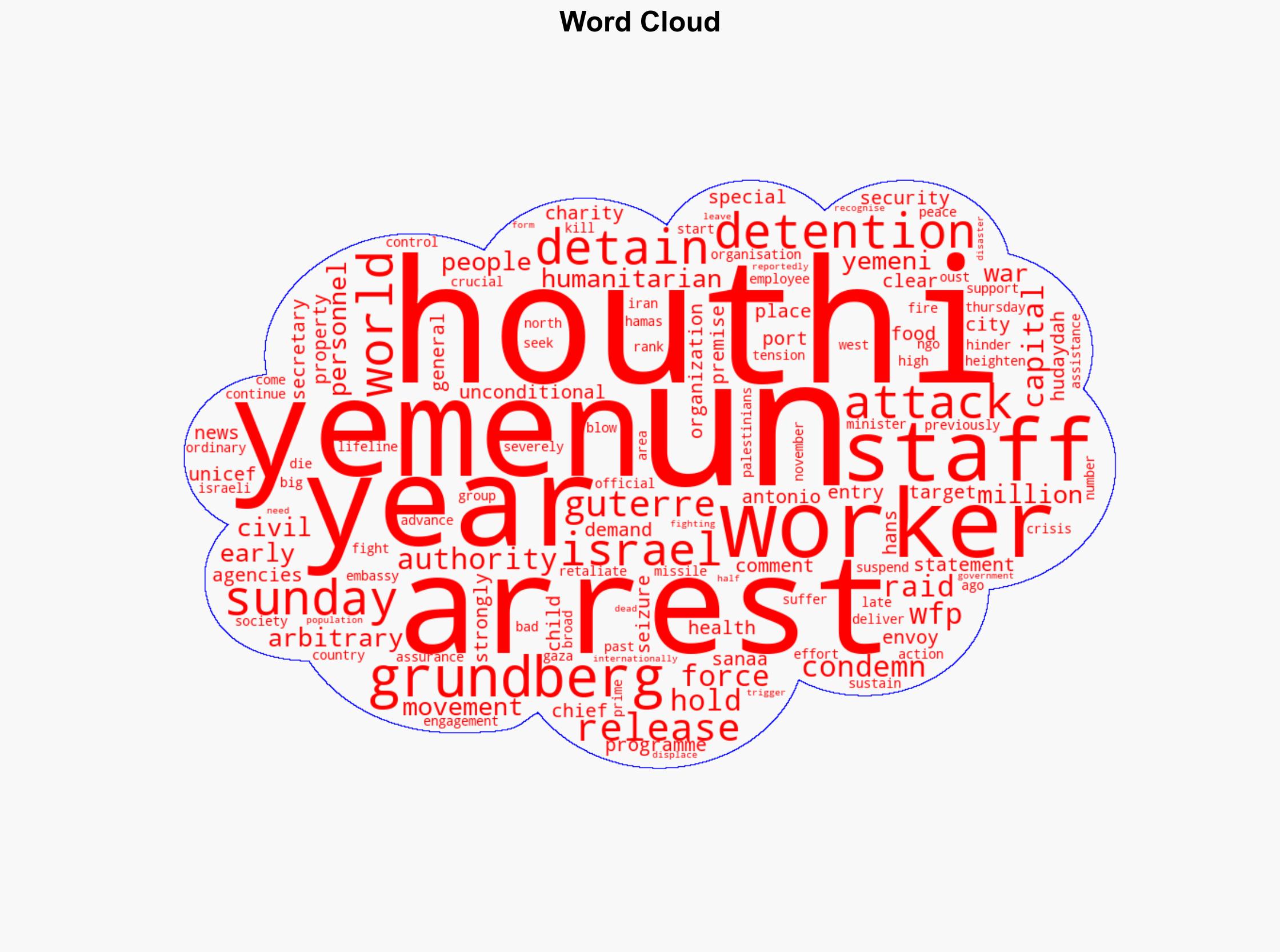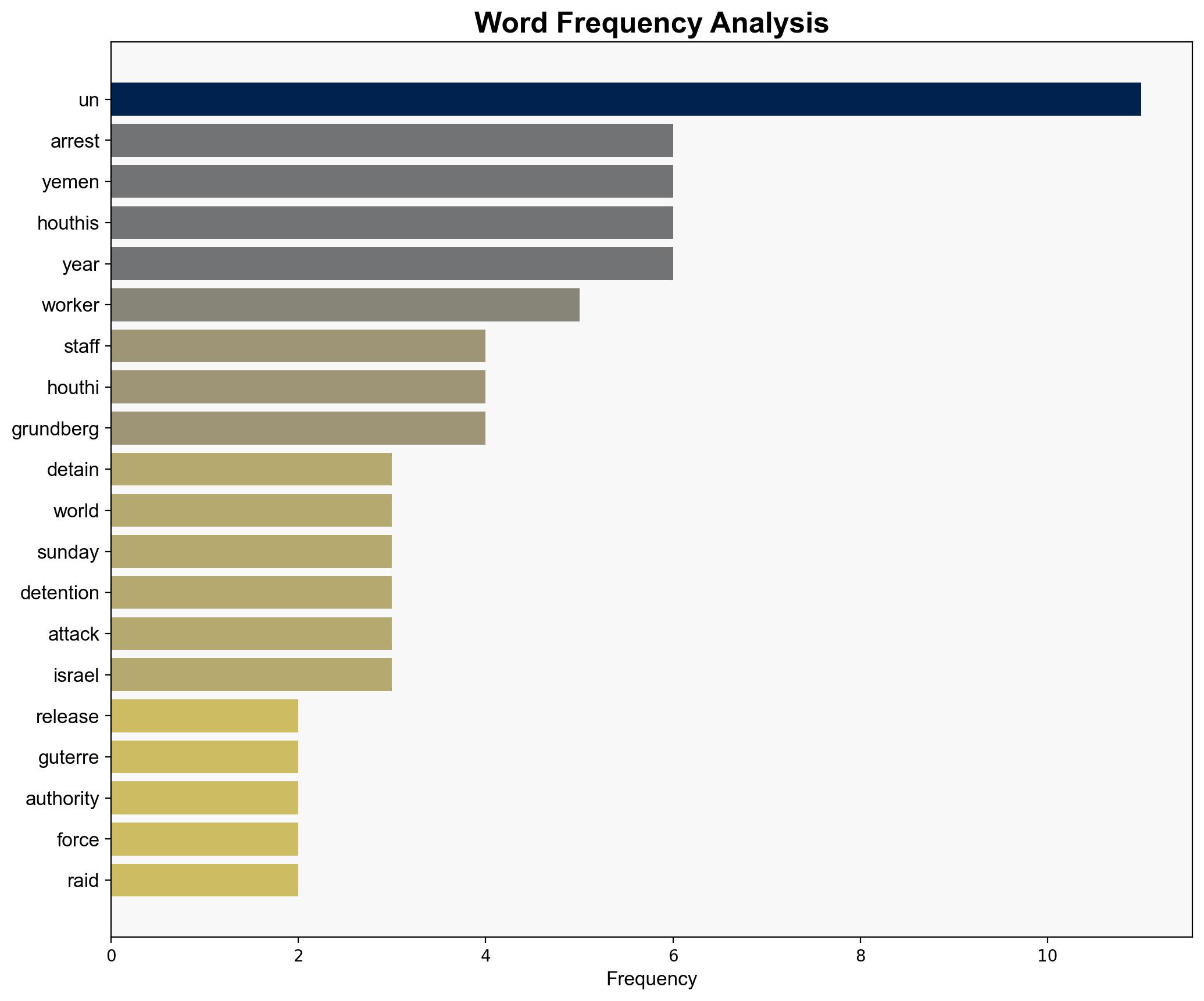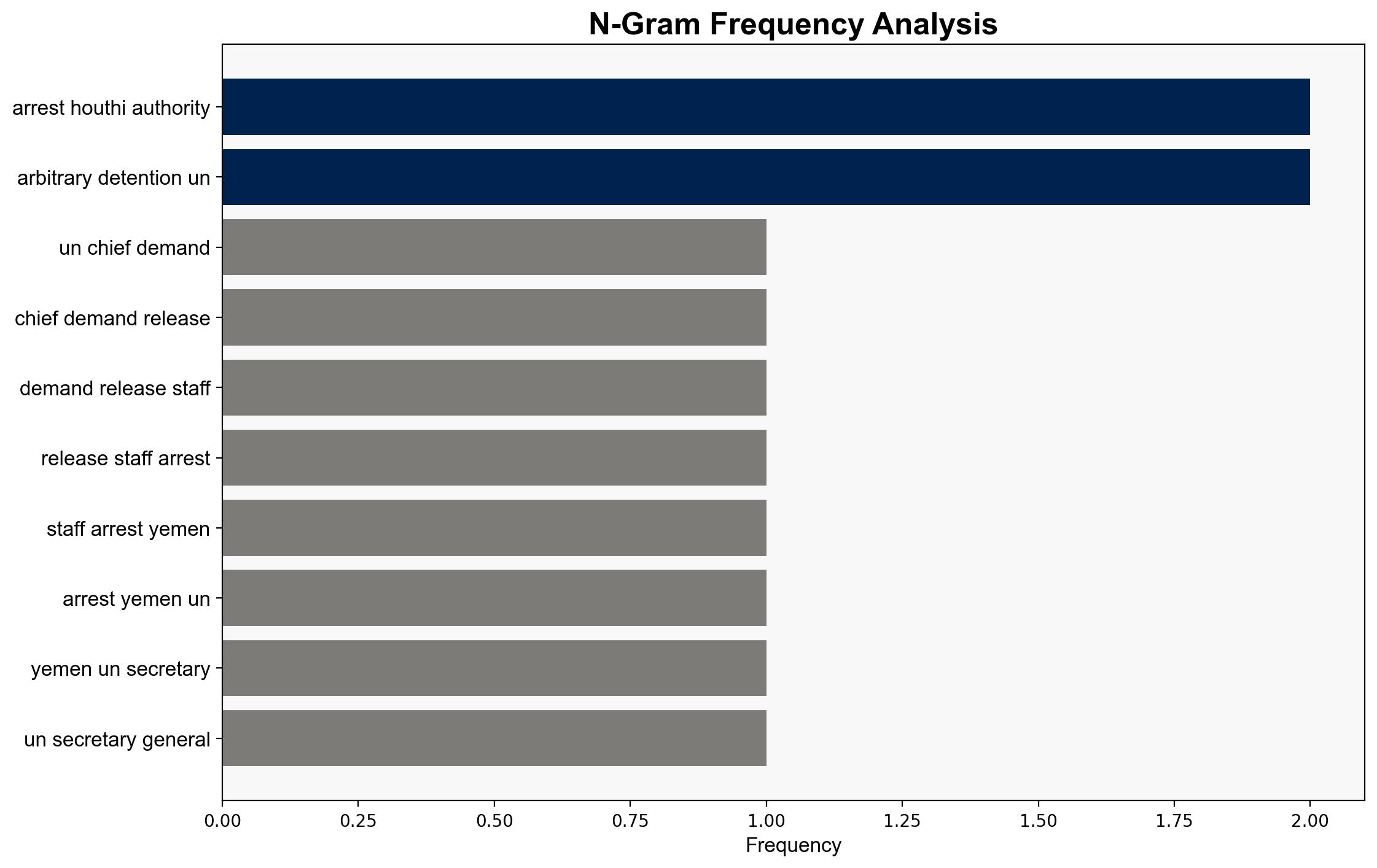UN chief demands release of 11 staff arrested in Yemen – BBC News
Published on: 2025-09-01
Intelligence Report: UN chief demands release of 11 staff arrested in Yemen – BBC News
1. BLUF (Bottom Line Up Front)
The most supported hypothesis is that the arrests of UN staff by Houthi authorities are a strategic maneuver to leverage international attention and pressure amid escalating regional tensions. Confidence level: Moderate. Recommended action: Increase diplomatic engagement with regional stakeholders to facilitate the release of detainees and de-escalate tensions.
2. Competing Hypotheses
1. **Hypothesis A**: The arrests are a tactical move by the Houthis to gain leverage in negotiations with international entities, using detained UN personnel as bargaining chips to extract concessions or relief from sanctions.
2. **Hypothesis B**: The arrests are primarily a response to internal security concerns, with the Houthis perceiving UN activities as potentially threatening to their control, especially in light of recent regional escalations involving Israel and Iran-backed groups.
Using ACH 2.0, Hypothesis A is better supported due to the timing of the arrests coinciding with heightened regional tensions and the historical pattern of using detentions for negotiation leverage.
3. Key Assumptions and Red Flags
– **Assumptions**: It is assumed that the Houthis have a coherent strategy that involves using international personnel as leverage. Another assumption is that the Houthis have the capability to manage the international backlash effectively.
– **Red Flags**: The lack of direct communication from the Houthis regarding their intentions raises questions. The absence of detailed information on the conditions and treatment of the detainees is concerning.
4. Implications and Strategic Risks
The arrests could exacerbate humanitarian conditions by disrupting aid operations. There is a risk of further regional destabilization if the situation escalates, potentially drawing in more international actors. The incident could also set a precedent for similar actions by other non-state actors in conflict zones.
5. Recommendations and Outlook
- Engage in multilateral diplomacy involving key regional players to negotiate the release of the detainees.
- Prepare for potential escalation scenarios, including increased military activity or retaliatory actions by regional actors.
- Scenario Projections:
- **Best Case**: Successful diplomatic negotiations lead to the release of detainees and a reduction in regional tensions.
- **Worst Case**: Escalation leads to broader regional conflict, further complicating humanitarian efforts.
- **Most Likely**: Protracted negotiations with intermittent escalations, maintaining a status quo of tension.
6. Key Individuals and Entities
– Antonio Guterres
– Hans Grundberg
– Houthi authorities
7. Thematic Tags
national security threats, regional focus, humanitarian crisis, diplomatic negotiations




